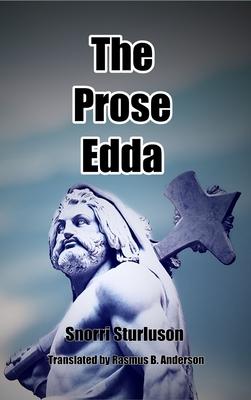The Prose Edda, first systemized and captured as a coherent document by the Icelandic scholar Snorri Sturluson in the year 1220, contain the collection of traditional stories and legends handed down since the age of the Vikings, and has become the main source for all subsequent iterations of Norse mythology.
Based on the earlier, and untitled "Poetic Edda," the Prose Edda covers the entire spectrum of Norse mythology from the creation to the prophesized destruction of the world.
The work consists of three major parts: The Prologue, which is an euhemerized Christian account of the origins of Nordic mythology: the Nordic gods are described as human Trojan warriors who left Troy after the fall of that city and who settled in northern Europe, where they were accepted as divine kings because of their superior culture and technology.
The second part, The Fooling of Gylfe, tells of the creation and destruction of the Nordic gods' world, and deals with many other aspects of Norse mythology.
The third part, The Skldskaparml, consists of a dialogue between gir, a god associated with the sea, and Bragi, a skaldic god, in which both Nordic mythology and discourse on the nature of poetry are intertwined.
This edition also contains an important introduction, a full set of explanatory notes, a vocabulary list, and an index.
